Noise pollution is an increasing problem in these days of hectic living, overcrowded towns and cities, and dense traffic. Noise pollution doesn't create as many major health problems as other forms of pollution, but they're there nonetheless. They include aggression, panic attacks, loss of hearing and high blood pressure, so noise pollution control and prevention is vital.
The Control of Noise at Work Regulations 2005 help protect the one million-plus UK workers exposed to noise pollution that could damage their hearing. Noise pollution at work has also caused deafness, tinnitus or other ear conditions in about 170,000 people in the UK. Under the laws, employers must tell workers in noisy areas about the risks to their hearing. They must train someone to implement a noise programme and carry out regular noise assessments. And, if daily or weekly average exposure is likely to exceed 85 dB(A) in any area, it must be designated a hearing-protection zone.
Away from the law, technology has helped reduce noise pollution. Solutions include the installation of noise barriers along major roads to block noise; re-routing traffic away from residential areas is another method of reducing noise pollution. Buildings have been designed to contain noise, too, while car engines are much quieter these days.
Companies such as Sound Reduction Systems (SRS) provide materials for use in soundproofing Commercial and Domestic premises that help prevent external and internal noise pollution and help with office soundproofing.
For noise pollution from nightclubs and venues, Sound Reduction Systems (SRS) recommends Maxiboard, which can be built onto the framework of the walls and ceilings. For domestic issues, where noise pollution from traffic, aeroplanes, industrial sites and construction or roadwork is a problem, home-owners need to specify appropriately rated glazing to keep noise pollution out.
These days, the World Health Organisation recommends maximum internal noise levels within homes. In practice, this involves an acoustic consultant carrying out a PPG 24 assessment at planning stage, with average noise levels measured over a full 24-hour cycle, to establish which Noise Exposure Category the development falls within.
When we think about pollution, noise is probably not top of our list. However, in today's increasingly hectic world, it's something that we'll all have to pay more attention to – or risk the wrath of the law.
SRS has a wide range of products that can tackle any acoustic issue including soundproofing for walls, ceilings and acoustic flooring solutions. The company also has the most experienced and qualified technical team in the business, and their advice is always free of charge. To talk over any acoustic issues you may have, please call 01204 380074 or email your enquiry to info@soundreduction.co.uk










